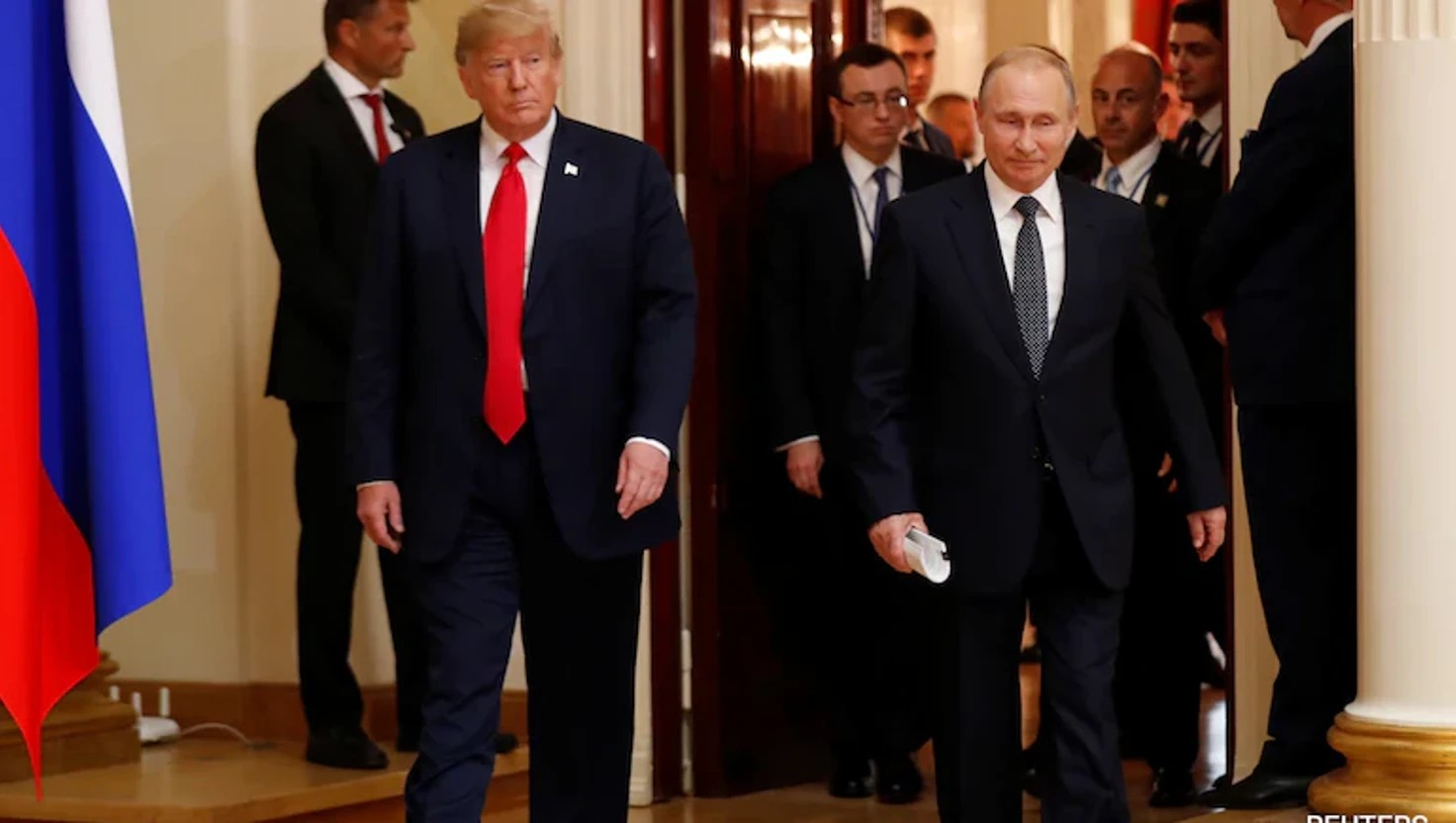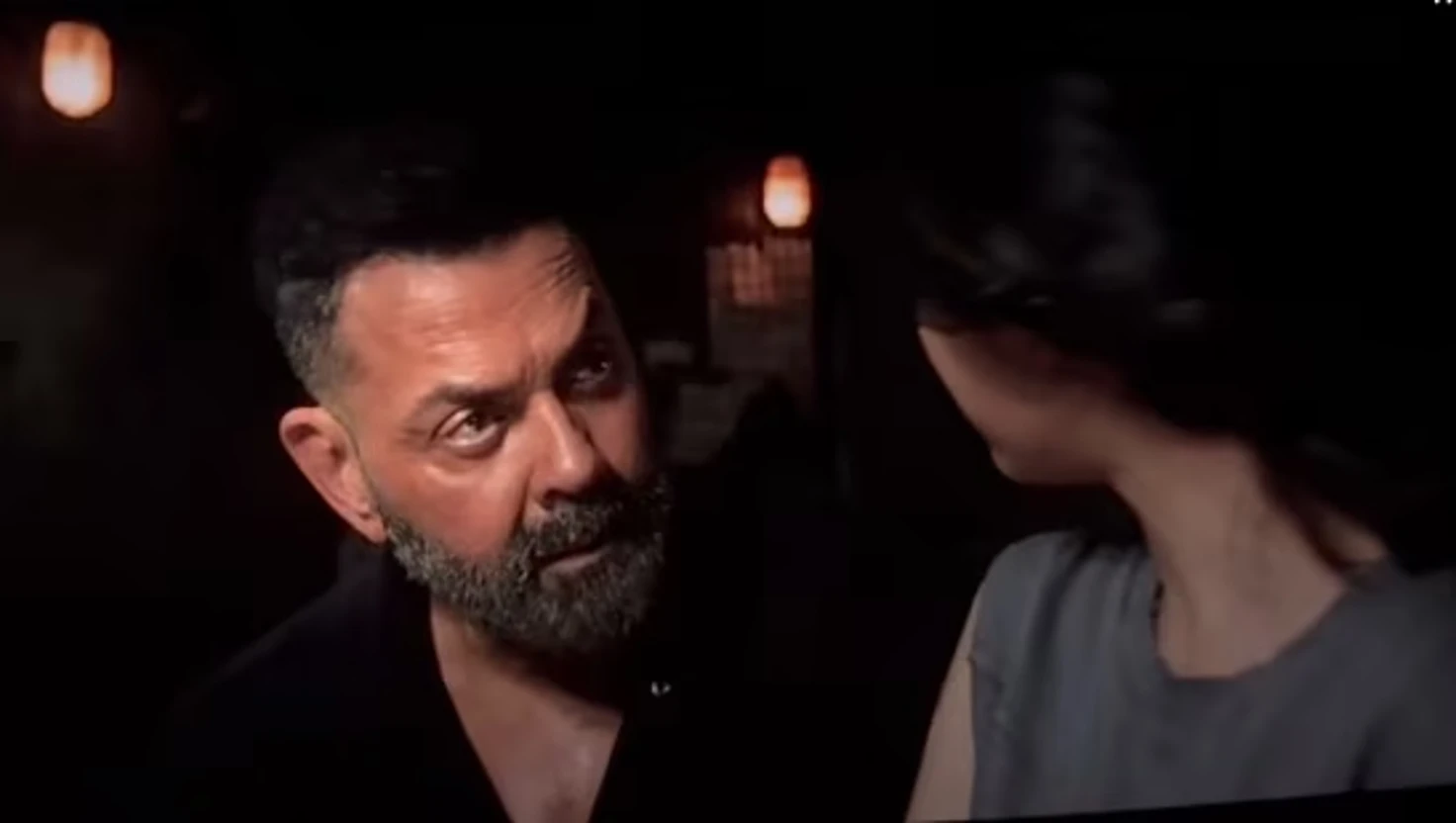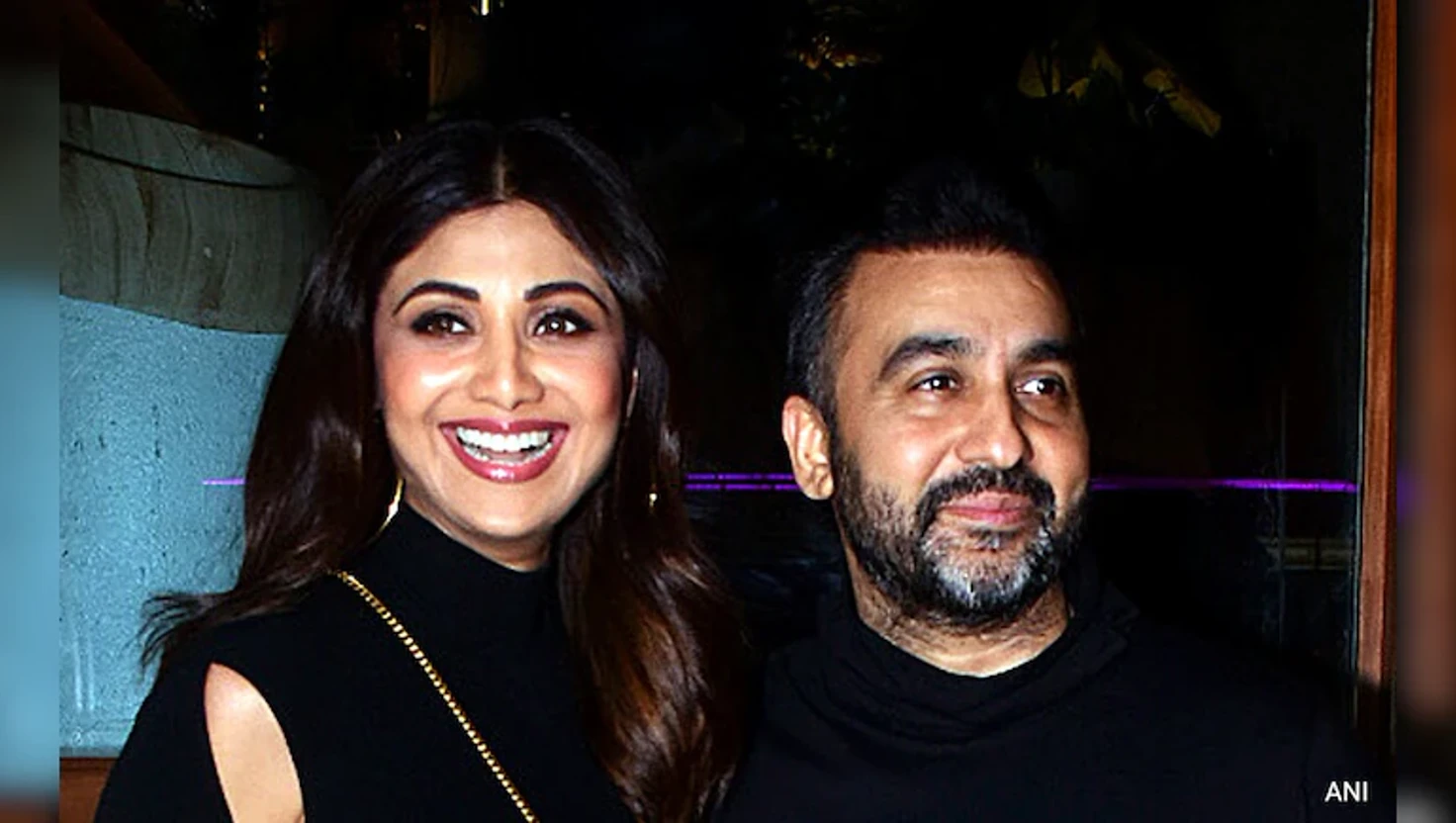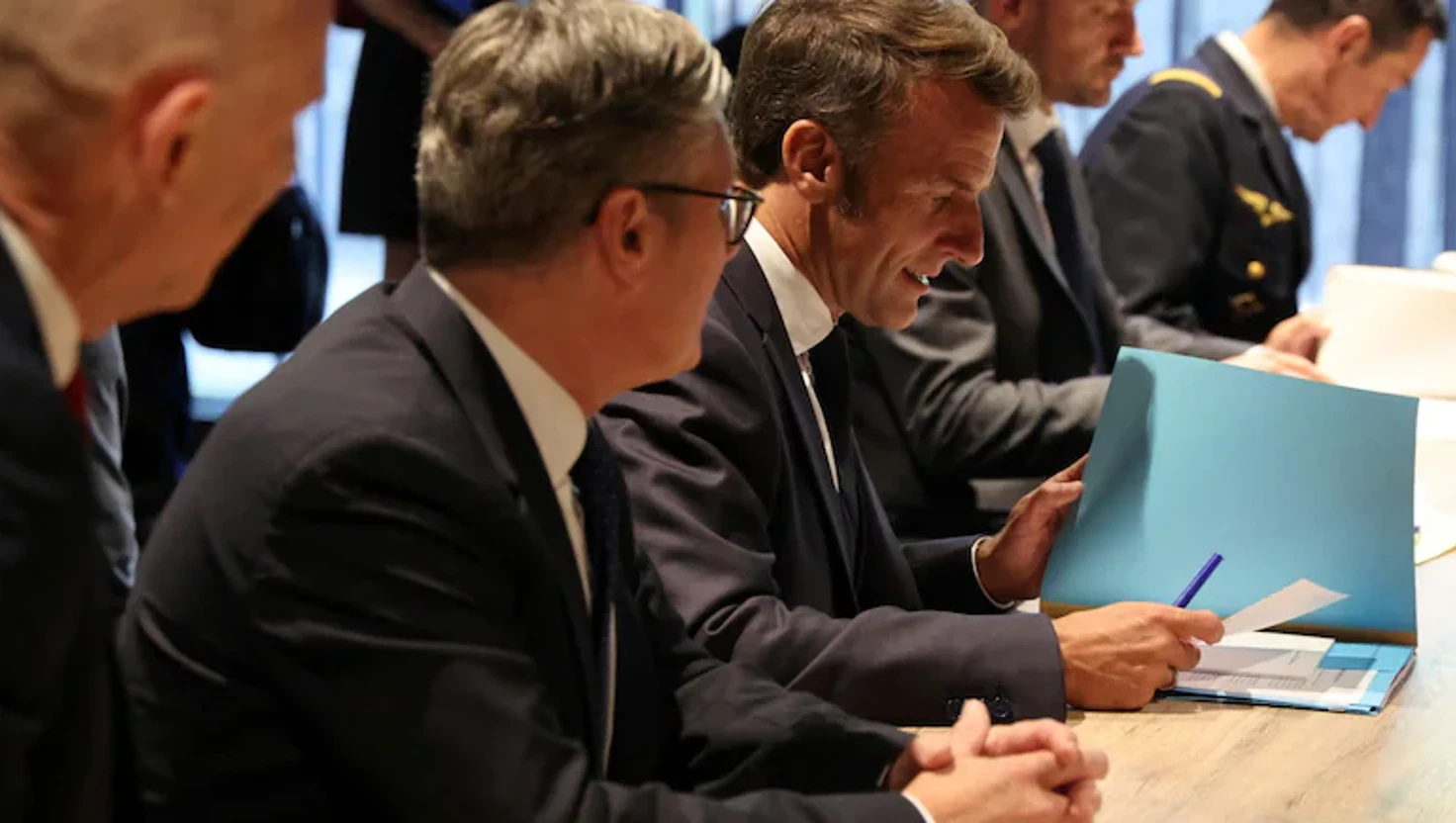Trump Says 25 percent chance Putin Summit Could Fail

Trump Says 25 percent chance Putin Summit Could Fail
US President Donald Trump anticipates a future three-party meeting on Ukraine's conflict while acknowledging potential meeting failures with Vladimir Putin.
US President Donald Trump has indicated that any resolution to the ongoing conflict sparked by Russia's invasion of Ukraine will likely be reached in a subsequent three-way meeting. This discussion would include Ukrainian President Volodymyr Zelensky and Russian President Vladimir Putin. Trump's comments were made ahead of his summit with Putin scheduled to take place in Alaska on August 15.
"The second meeting is going to be very, very important, because that’s going to be a meeting where they make a deal," Trump stated in an interview with Fox News Radio. He pointed out that while he did not want to use the term "divvy things up," he acknowledged it as a somewhat fitting description of the negotiations ahead.
Ahead of the summit, Trump assessed that there was a 25 per cent chance that his upcoming discussion with Putin would not lead to a successful outcome. He clarified that the summit primarily serves as a precursor to more substantial talks.
The meeting will mark Putin’s first visit to the United States since he initiated the invasion of Ukraine in 2022, a conflict that has led to significant loss of life. The gathering is set to occur at Joint Base Elmendorf-Richardson in Anchorage, Alaska, a location of historical significance due to its sale to the United States by Russia in 1867.
Per the Kremlin’s announcement, the summit will commence with a private discussion between Trump and Putin, followed by subsequent talks involving respective delegations. A joint press conference is also expected post-discussions. White House Press Secretary Karoline Leavitt described the summit's goal as a “listening exercise” intended to clarify Putin's strategic intentions.
Prior to the summit, US Secretary of State Marco Rubio stressed that any peace agreement would need to encompass security guarantees for Ukraine. He expressed hope that the meeting would yield constructive outcomes. Zelensky recently participated in a conference call alongside Trump and European leaders, where they outlined five negotiation principles, including a ceasefire. However, it was confirmed that no Ukrainian official would attend the Alaska meeting. Following his discussions with Putin, Trump stated he would reach out to Zelensky.
A report by The New York Times suggested that Putin’s expectations for any agreement could involve recognising Russian control over parts of eastern Ukraine, preventing Ukraine from joining NATO, imposing limits on its military capabilities, and ensuring a friendly Ukrainian government.
Trump has previously claimed he could conclude the war swiftly upon returning to office, linking his diplomatic aspirations with hopes for a Nobel Peace Prize. However, some analysts are cautious about the effectiveness of his negotiations, especially in light of ongoing tensions and recent military escalations.
While European leaders express concern regarding the nature of the negotiations, they welcomed a recent discussion with Trump, perceiving his focus on achieving a ceasefire rather than forcing concessions on Ukraine. Zelensky, who is set to meet with British Prime Minister Keir Starmer, affirmed that any agreements must retain Ukraine's territorial integrity, amidst Russia’s continued military advances.
As the conflict unfolds, diplomatic efforts have struggled to achieve meaningful agreements, often limited to prisoner exchanges. Russia announced on Thursday that it had facilitated the transfer of 84 Ukrainian prisoners in exchange for an equal number of its personnel. The developments leading up to the Alaska summit suggest both the complexities of the ongoing conflict and the challenges that lie ahead in achieving a sustainable peace.
"The second meeting is going to be very, very important, because that’s going to be a meeting where they make a deal," Trump stated in an interview with Fox News Radio. He pointed out that while he did not want to use the term "divvy things up," he acknowledged it as a somewhat fitting description of the negotiations ahead.
Ahead of the summit, Trump assessed that there was a 25 per cent chance that his upcoming discussion with Putin would not lead to a successful outcome. He clarified that the summit primarily serves as a precursor to more substantial talks.
The meeting will mark Putin’s first visit to the United States since he initiated the invasion of Ukraine in 2022, a conflict that has led to significant loss of life. The gathering is set to occur at Joint Base Elmendorf-Richardson in Anchorage, Alaska, a location of historical significance due to its sale to the United States by Russia in 1867.
Per the Kremlin’s announcement, the summit will commence with a private discussion between Trump and Putin, followed by subsequent talks involving respective delegations. A joint press conference is also expected post-discussions. White House Press Secretary Karoline Leavitt described the summit's goal as a “listening exercise” intended to clarify Putin's strategic intentions.
Prior to the summit, US Secretary of State Marco Rubio stressed that any peace agreement would need to encompass security guarantees for Ukraine. He expressed hope that the meeting would yield constructive outcomes. Zelensky recently participated in a conference call alongside Trump and European leaders, where they outlined five negotiation principles, including a ceasefire. However, it was confirmed that no Ukrainian official would attend the Alaska meeting. Following his discussions with Putin, Trump stated he would reach out to Zelensky.
A report by The New York Times suggested that Putin’s expectations for any agreement could involve recognising Russian control over parts of eastern Ukraine, preventing Ukraine from joining NATO, imposing limits on its military capabilities, and ensuring a friendly Ukrainian government.
Trump has previously claimed he could conclude the war swiftly upon returning to office, linking his diplomatic aspirations with hopes for a Nobel Peace Prize. However, some analysts are cautious about the effectiveness of his negotiations, especially in light of ongoing tensions and recent military escalations.
While European leaders express concern regarding the nature of the negotiations, they welcomed a recent discussion with Trump, perceiving his focus on achieving a ceasefire rather than forcing concessions on Ukraine. Zelensky, who is set to meet with British Prime Minister Keir Starmer, affirmed that any agreements must retain Ukraine's territorial integrity, amidst Russia’s continued military advances.
As the conflict unfolds, diplomatic efforts have struggled to achieve meaningful agreements, often limited to prisoner exchanges. Russia announced on Thursday that it had facilitated the transfer of 84 Ukrainian prisoners in exchange for an equal number of its personnel. The developments leading up to the Alaska summit suggest both the complexities of the ongoing conflict and the challenges that lie ahead in achieving a sustainable peace.

Arjun Tendulkar Engaged to Saaniya Chandok in Private Ceremony
Cricketer Arjun Tendulkar, son of Sachin Tendulkar, recently became engaged to Saaniya Chandok, granddaughter of businessman Ravi Ghai.
| 2025-08-15

War 2 Post-Credits Scene Introduces Bobby Deol's Alpha Character
War 2's post-credits reveals Bobby Deol's character from Alpha, expanding the YRF Spy Universe amid mixed reviews for the film itself.
| 2025-08-15

Allegations Against Shilpa Shetty and Raj Kundra over ₹60 Crore Fraud
Bollywood actor Shilpa Shetty and Raj Kundra face fraud accusations involving ₹60.4 crore, claimed by a businessman connected to their now-closed venture.
| 2025-08-15

UK, France and Germany Prepared to Re-implement Sanctions on Iran Over Nuclear Actions
The UK, France, and Germany warn of potential sanctions against Iran's nuclear programme if negotiations do not resume by the end of August 2025.
| 2025-08-14

Global Fans and Companies Rally for Release of Rajinikanth's 'Coolie'
Ahead of its release, Rajinikanth's film 'Coolie' prompts holidays, free tickets, and employee outings across India and Singapore.
| 2025-08-14




